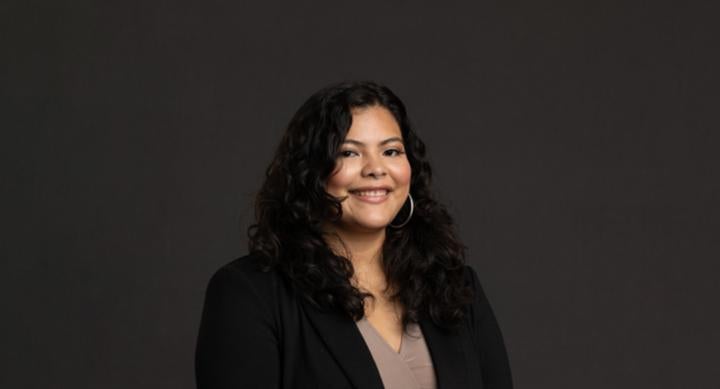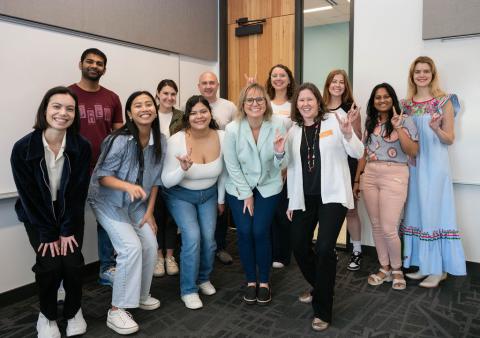
Next spring, Celeste Diaz will travel to Oaxaca, Mexico to complete 500 hours of social work practicum. The Master of Science in Social Work (MSSW) and Master of Business Administration (MBA) dual degree candidate will work with nonprofits to consult small businesses run by Indigenous artistsans and their communities. Diaz will be the first social work intern to travel to Oaxaca for this opportunity.
“I thought Oaxaca was super interesting because it’s a hot touristy place right now,” Diaz said. “I'm interested to see what tourism does to Indigenous communities, especially if you're working with businesses, and how you can stay authentic to the culture while ensuring that these communities thrive.”
Diaz graduated from the University of Pennsylvania with a degree in Sociology in 2019 and later moved back home to Houston. She began working at Santa Maria Hostel, an organization with a substance abuse treatment program for women, which sparked her desire to pursue social work more formally. As she explored dual degree programs with an MBA degree, she also knew she wanted to pursue nonprofit leadership. She eventually found a match at UT Austin, where she is also pursuing the RGK Center’s Nonprofit Studies graduate portfolio.
“The values that guide us as social workers should be something every industry follows,” she continued. “Living in a capitalistic society, we need business skills to impact as many people as possible. It's been cool learning how both worlds work and where they intersect.”
Diaz, initially denied acceptance from the MBA program, stayed optimistic and reapplied. Understanding the utility of the dual degree helped her see the many possible career paths that emerge from combining both fields.
“You could be in a corporate role focused on social impact, or in the nonprofit world doing more of the consulting and business-oriented work,” Diaz said. "Once I understood each side on its own and then saw where they overlapped, that’s when it clicked."

Many classes in the LBJ School are cross-listed with the MBA program, including Financing State and Local Organizations, taught by professor Marty Luby. Cross-disciplinary courses like this one allow her to see perspectives on this topic from both sectors, Diaz said.
“If I were taking it strictly as an MBA course, we’d focus more on the investor side of funding projects,” Diaz said. "What I’ve liked most is seeing how certain public-benefit projects can also be funded by the private sector, and how those partnerships come together." Diaz said that to create long-term change, people working in the social sector must understand the full story—not just the fact that a community is in need.
“I think the corporate side doesn’t ask deeper questions often enough, and on the social work side, people don’t always know how to advocate or build true partnerships with the corporate world,” she said. “It can turn into a dynamic where the people with funding hold all the power, instead of a collaboration.”
For Diaz, meaningful change starts by creating space—even if that space is just conversation among nonprofits that share similar missions, which may eventually lead to stronger collaborations. The nonprofit sector is saturated, she explained, and often results in nonprofits competing for the same limited resources.
“If you’re a student who wants to make an impact, that doesn’t have to mean founding something new,” she said. “You can contribute ideas, join an existing group with established funding, and help broaden or reshape its mission so it aligns with what you care about. Sometimes the most meaningful change comes from strengthening what already exists.”